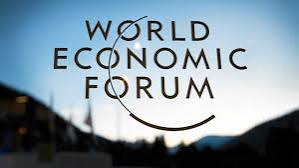By Akande Faith Olajumoke

The Technology Pioneers community of the World Economic Forum (WEF) was established in 2000. It is made up of early-stage companies from all over the world that are engaged in the design, development, and implementation of novel technologies and innovations that have the potential to have a big influence on the business and societal landscape.Through the WEF, the community can interact with leaders in the public and private sectors, offer fresh approaches to resolving the current crisis, and foster future resilience.The WEF’s Center for the Fourth Industrial Revolution includes the Technology Pioneers community as one of its Innovator Communities.The world’s most successful start-ups from various growth stages, ranging from early-stage Technology Pioneers to growth-stage Global Innovators and unicorn companies valued at over $1 billion, come together at the Innovator Communities.
The World Economic Forum revealed the 2024 cohort of Technology Pioneers during the first week of June 2024.The top 100 tech start-ups are a carefully chosen group that is committed to using the latest advances in AI to create innovative healthcare solutions, clean energy solutions, and advancements in biotech, space, and neuroscience.In order to help scale the impact of the Forum’s global initiatives over the next two years, these companies, according to WEF, will provide cutting-edge insights and expertise.There are start-ups from 23 different countries in this year’s Technology Pioneers cohort, with a third headed by a female CEO.This year, with an unprecedented volume of applications, the emphasis is on businesses that have made major technological advancements and are currently experiencing rapid expansion. These consist of biotechnology, AI, quantum, and nuclear fusion.
The start-ups’ innovations fall into the following categories: clean technology, neurotechnology, space, and new energy solutions. Three of this year’s cohort’s start-ups are taking daring steps to develop fusion technology.Artificial Intelligence for HR and GenAI 2.0 are two more areas of innovation. Although generative AI (GenAI) has taken the world by storm in the last year, according to WEF, innovative start-ups are currently creating larger language models (LLMs) with revolutionary uses.
According to WEF, these companies are using the latest developments in AI to create industry solutions, such as ground-breaking breakthroughs in biotech, space, clean energy, healthcare, and neurotechnology.The biggest entrepreneurship ecosystems in the world—China, the United States, and India—represent a disproportionately large portion of the 2024 Technology Pioneers cohort. This year, India has seen an unprecedented number of start-ups.Based on a breakdown of the 100 start-ups, the following regions have the most businesses: sub-Saharan Africa has four; ASEAN (Association of South East Asian Nations) has four; Europe has twenty; China has eleven; Japan has two; North Asia and the Republic of Korea have three; South Asia has ten in total; Latin America has four; the Middle East and North Africa has six; and North America has thirteen.Five companies are included in the WEF’s 2024 Technology Pioneers from the Continent of Africa and based in Africa list: East African bus operators can choose electric buses from Kenya’s BasiGo as a more dependable and cost-effective option than the traditional diesel buses.Africa’s mass market is being catered to by Kapu, another Kenyan start-up. Jetstream is a West African company that works to streamline the import and export cargo transportation and financing process across Africa’s supply chains by utilizing artificial intelligence and digitalization.
An additional West African start-up is uLesson, based in Nigeria, which provides primary and secondary school students in the continent with a vast collection of curriculum-aligned video lessons and tests.And originating in Egypt, Khazna is a North African start-up that is creating a workforce bank to serve the underprivileged throughout the Middle East.Global industry revolutions are being driven by the 2024 Technology Pioneers, according to Verena Kuhn, Head of Innovator Communities at the World Economic Forum.
“These trailblazers are utilizing cutting-edge technologies to propel the revolutionary shifts required to address the most pressing global issues.”We look forward to seeing how their ground-breaking research will enhance Forum programs and help forge strong alliances between the public and private sectors to address these pressing global concerns.
